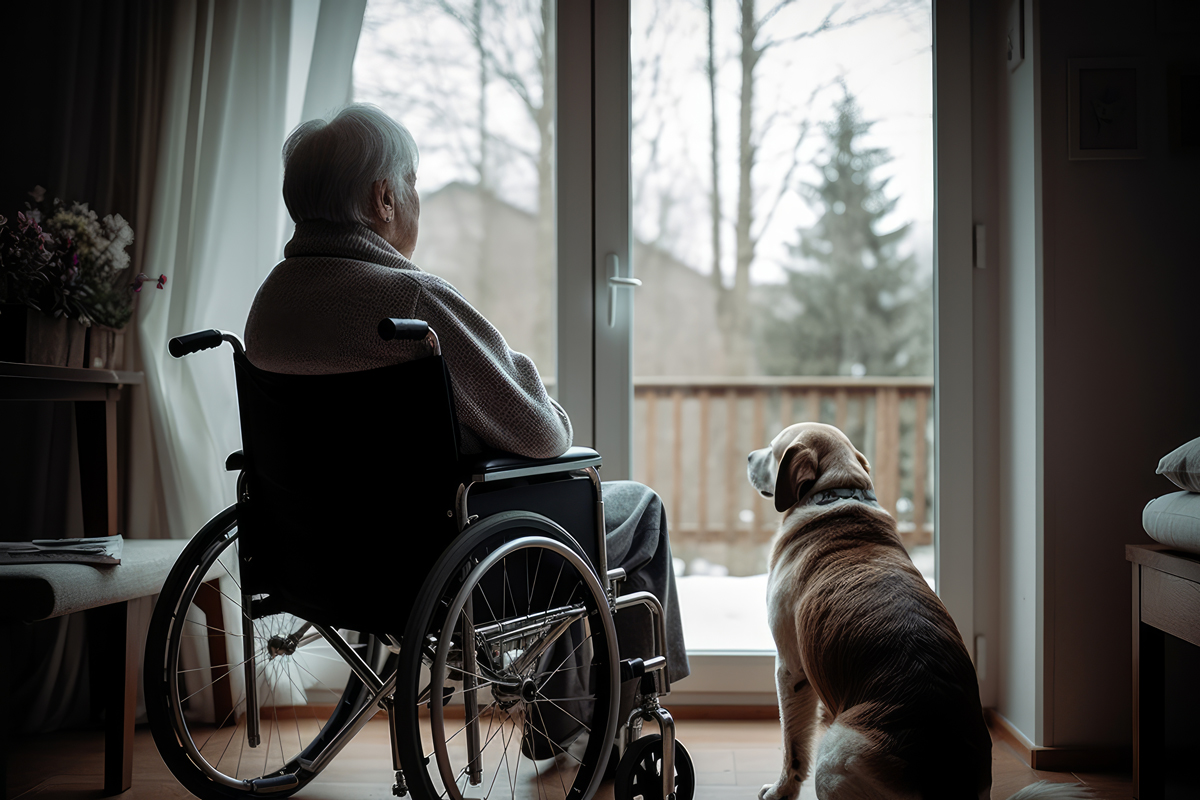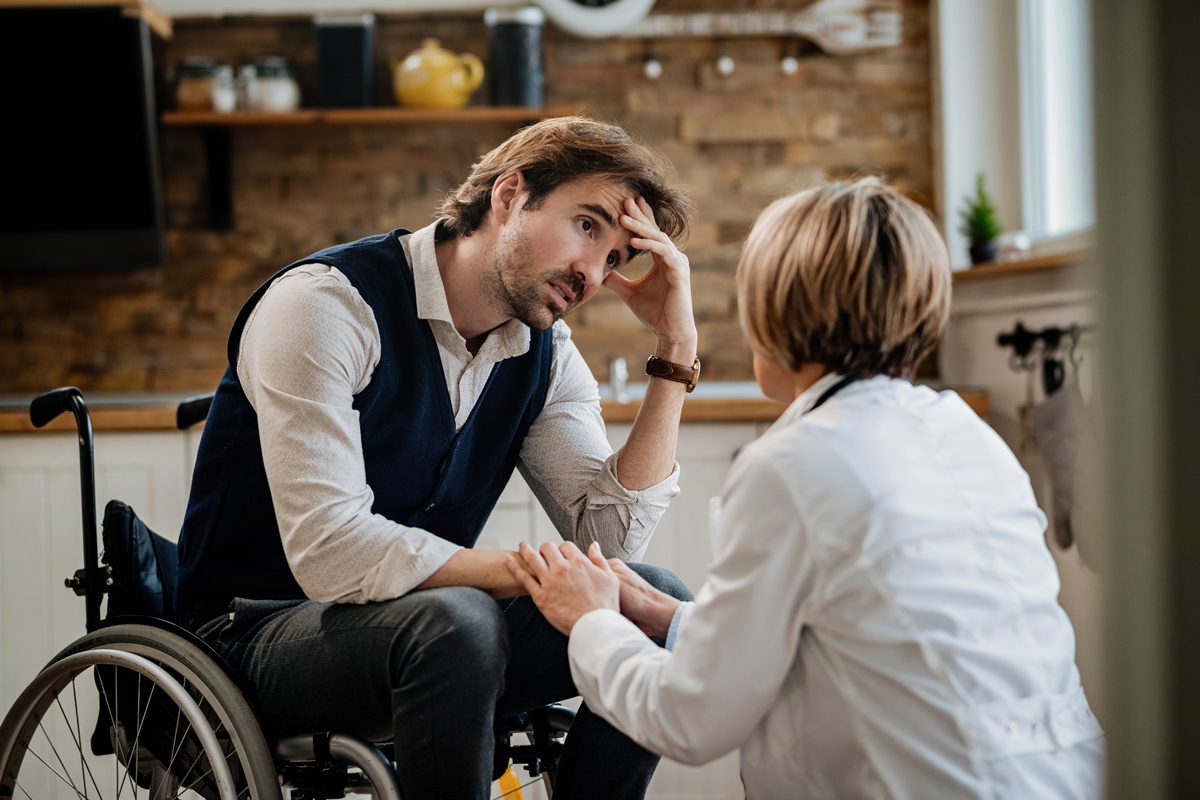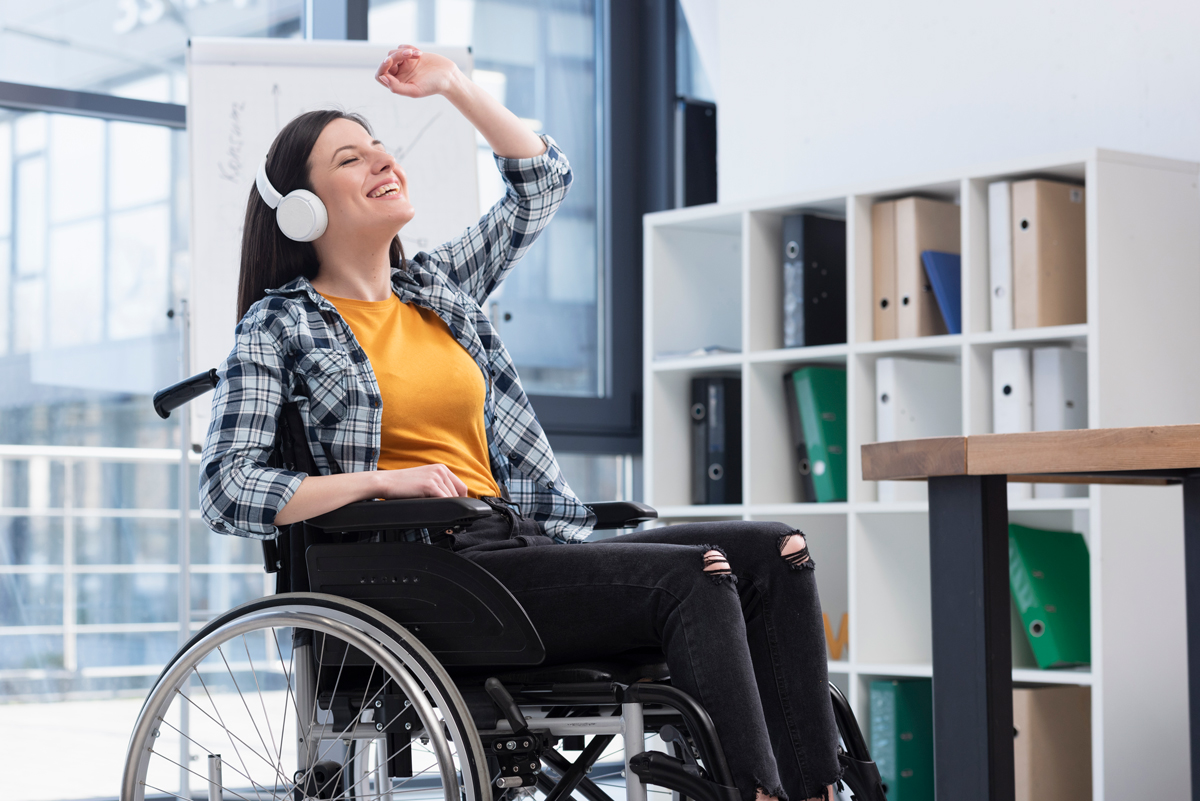
The Emotional Toll of Personal Injury
Coping With the Aftermath of a Personal Injury
Have you recently been in an auto accident and are struggling to cope with the emotional toll of your injuries?
The aftermath of a personal injury can be overwhelming and can take a significant toll on your mental health.
If you’re feeling anxious, depressed, or overwhelmed, know that you’re not alone.
Definition of Personal Injury
A personal injury is an injury or harm caused to an individual’s physical or mental health as a result of someone else’s negligence or intentional wrongdoing.
It could be a result of a variety of tragic events such as:
- Traffic accidents
- Injuries from defective products
- Health problems caused by medical malpractice
- Falls
- Workplace accidents
Physical symptoms span a wide range from minor injuries such as bruises and cuts to severe injuries such as broken bones, brain trauma, chronic pain, spinal cord injuries, and amputations.
The consequences can cause an enormous physical, financial, and emotional toll on a person’s life, forcing them to deal with medical expenses, lost wages, insurance claims, and long-term rehabilitation and painful medical treatments.
Acknowledging the Emotional Toll
Personal injuries can also cause mental health conditions and emotional pain, such as anxiety disorders, post-traumatic stress disorder (PTSD), depression, and a fear of future accidents. The emotional toll of a personal injury can be just as challenging and difficult as the physical pain and financial losses that come with it.
After an injury, many people struggle with feelings of sadness, anger, frustration, and anxiety. They may feel scared, helpless, and uncertain about their future. Keeping up with doctor’s appointments and medical treatments can cause stress levels to soar.
Poor emotional health can lead to a range of psychological symptoms such as insomnia, social withdrawal, and difficulty concentrating.
By acknowledging and addressing the emotional tolls of a personal injury, you can take an essential step toward a complete and healthy recovery.

The Emotional Impact of a Personal Injury
Psychological Distress
Individuals who’ve experienced a traumatizing event may feel intense fear in similar situations, have difficulty sleeping, be wary of people and things around them, or have flashbacks about the incident. As a result, they may have difficulty coping and may rely on negative coping mechanisms such as smoking or drinking.
These symptoms can significantly affect an individual’s everyday functioning and ability to manage the events of their life, making it imperative for them to seek professional mental health help.
A mental health professional can help an individual process their emotions in a supportive environment, develop positive coping strategies, and make changes to their emotional well-being. Techniques such as cognitive-behavioral therapy and exposure therapy can be highly effective in helping an individual cope with the emotions that result from a traumatic injury.
Psychological distress can occur immediately following an injury, or symptoms may develop over time.
Anxiety is a common side effect of personal injuries and can manifest as apprehension or nervousness, causing individuals to avoid activities they previously enjoyed.
Individuals may experience panic attacks, obsessive behavior, or excessive worrying that interferes with daily life.
Depression is another common side effect, characterized by a lack of energy, loss of interest in activities, sleep disorders, and poor self-esteem.
Post-Traumatic Stress Disorder
PTSD, a severe psychological condition, is also prevalent in individuals who experience personal injuries.
PTSD can result from exposure to a traumatic event such as an assault, accident victim, or natural disaster.
Post-traumatic stress symptoms can include:
- Emotional numbing
- Flashbacks (reliving traumatic memories)
- Impaired social and occupational functioning
- Intrusive thoughts
- Nightmares
The emotional impact of a personal injury can be just as severe as the physical injuries sustained.
Frustration can stem from an inability to return to normal activities or the sense of injustice of the situation. Anger towards the person or event that caused the injury is also common.
Around 70% of adults in the United States have experienced at least one trauma in their lives. Not everyone will have lasting effects, but 6% of U.S. adults develop post-traumatic stress disorder (PTSD). [1]
Intense Emotions
It is not uncommon for individuals to experience intense emotions following a personal injury.
The physical and emotional trauma associated with an injury can be overwhelming and lead to a range of emotions, including:
- Anger
- Confusion
- Fear
- Frustration
Fear is a typical response to personal injury, as individuals may worry about their future and the long-term impacts of their injuries.
Anger and frustration are also common, stemming from feelings of injustice or lack of control over the circumstance leading to the injury.
Confusion and uncertainty about the future can lead to a sense of helplessness, adding to the overall emotional reactions and intensity of the situation.
These intense emotions can impact an individual’s mental and physical health, leading to issues such as insomnia, loss of appetite, and changes in mood.
It is important to address these intense emotions through therapy, support groups, and other healthy coping mechanisms to avoid any long-term negative effects.
By acknowledging and understanding these intense emotions, individuals can work towards healing and achieving a better quality of life.
Emotional distress, legally speaking, is mental anguish or emotional pain and suffering that — usually — must be accompanied by some physical manifestation. Because lawmakers want to avoid lawsuits over mere hurt feelings, most emotional distress claims must be accompanied by sleeplessness, anxiety, higher blood pressure or some other physical sign of the emotional pain experienced. [2]

Quality of Life Impacts
The quality of life after a personal injury can be significantly impacted, both physically and emotionally.
The physical limitations resulting from an injury can impact an individual’s ability to perform daily activities and potentially impair social, professional, and personal relationships.
The emotional impact of a personal injury is also significant and can lead to a decreased overall quality of life. These injuries often lead to financial struggles, as individuals may have to face costly medical bills and may not be able to work for an extended period. This can lead to significant financial stress, impacting a person’s emotional well-being and quality of life.
By seeking appropriate care, individuals can work towards improving their quality of life and reducing the negative emotional impact of the injury.
Take time to process the emotional trauma of the injury and focus on healing both physically and emotionally to achieve a better quality of life.
Coping with the Aftermath of Personal Injury
Seeking Professional Help From a Mental Health Professional
A mental health professional can provide the necessary support and resources to help an individual cope with the trauma of the injury. They can also provide a safe space for individuals to express their emotions and feelings openly, without fear of judgment.
Therapy can help individuals develop coping strategies to manage their anxiety, depression, and other psychological symptoms resulting from a personal injury. It can help individuals understand the root causes of their emotions and work through them in a healthy and productive way.
A trained mental health professional can also help individuals manage their expectations and develop realistic goals during the recovery process, which can contribute to a faster and healthier recovery.
The benefits of seeking professional help from a mental health professional extend beyond the individual and can positively impact their relationships with family and friends who may also suffer emotional distress as a result of the personal injury.
Individuals should take care of their emotional and mental well-being as they heal from a personal injury and seek the appropriate resources to promote their recovery and a better quality of life.
Therapy can help individuals process traumatic experiences and events, develop coping strategies for anxiety and depression, and learn relaxation techniques to reduce stress.
Support groups and peer support can provide a sense of community and understanding to those dealing with psychological distress after a personal injury.
Those suffering are encouraged to seek professional help to address the emotional impact of the injury, reduce feelings of anxiety and depression, and develop efficient coping mechanisms to manage PTSD symptoms.
Self-Care Strategies for Managing Stress and Anxiety
After experiencing a personal injury, managing stress and anxiety is crucial for a successful recovery.
One of the key components of managing these emotions is through self-care.
Self-care can take many forms and is unique to each individual, but it is a vital part of reducing stress and anxiety related to an injury. Here are some self-care tips that can be helpful in managing these emotions:
Prioritize rest and relaxation: Getting proper rest, relaxation, and sleep is essential for physical and emotional healing. Make sure to set aside time for rest and relaxation, including activities such as meditation, yoga, or deep breathing exercises.
Engage in physical activity: Engaging in physical activity can help reduce stress and anxiety by releasing endorphins, the body’s natural mood-boosting chemicals. Find exercises that work for you and your injury, such as walking, stretching, or swimming.
Focus on positivity: Try to focus on positive thoughts and affirmations, and visualize yourself healing, recovering, and feeling better over time.
Practice healthy eating habits: Eating a balanced and healthy diet can help maintain physical and emotional well-being, providing the body with essential nutrients for healing. Make sure to eat nutrient-dense foods such as fruits, vegetables, and lean protein.
Connect with loved ones: It is essential to spend time with loved ones or join support groups to avoid feelings of isolation and loneliness. Connections with others can help reinforce a sense of community and provide emotional support.
Set realistic expectations: It is important to set realistic expectations for healing and recovery, as overcommitting can cause additional severe stress and anxiety. Celebrate small victories and take pride in each step towards healing.
Seek emotional support: Talk to friends and family about your emotional struggles and seek the help of a mental health provider if you need it.
Practice relaxation techniques: Relaxation techniques can help reduce stress and anxiety, including deep breathing exercises, meditation, or visualization. Find techniques that work for you and incorporate them into a daily routine.
By practicing self-care, individuals can manage stress and anxiety related to personal injuries, leading to a faster recovery and an overall improvement in physical and emotional well-being.
Work with an experienced Personal Injury Defense Attorney
Have you recently experienced a personal injury accident that has left you emotionally drained?
Trying to navigate the legal system alone can add to the stress and anxiety. That’s why you need an experienced personal injury lawyer on your side to help you through this difficult time.
With the right legal representation, you can focus on your emotional recovery while your lawyer handles the legal process. You deserve compensation for your pain and suffering, and a skilled personal injury lawyer can help you achieve it.
Contact Shook & Stone today to schedule a consultation with one of our compassionate and experienced personal injury lawyers. We’re here to help you get the justice and compensation you deserve. Don’t wait, the quicker you seek legal help, the quicker you can begin to heal.
Sources:
[1] Best Types of Therapy for Trauma: PTSD, Childhood Trauma, and More. (n.d.). Best Types of Therapy for Trauma: PTSD, Childhood Trauma, and More. https://psychcentral.com/health/best-types-of-therapy-for-trauma
[2] J.D., J. J. (2022, September 22). Suing For Emotional Distress: How and When to Sue. Forbes Advisor. https://www.forbes.com/advisor/legal/personal-injury/suing-emotional-distress/
 Sunny
Sunny A Guide to Understand Spinal Cord Injuries (SCI)
A Guide to Understand Spinal Cord Injuries (SCI) 